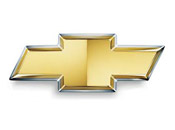Cheap 2017 Chevrolet Sonic Car Insurance Rates
No one in their right mind looks forward to paying premiums for car insurance, particularly when the cost is too high. Many car insurance companies compete for your insurance dollar, so it’s not easy to compare every insurer and get the best coverage at the best rates possible.
If you have insurance now or need a new policy, you can follow these tips to get lower rates while maximizing coverage. Buying car insurance is quite easy. Drivers just need to understand the best way to buy auto insurance over the internet.
The best way to get rate comparisons is to know the trick most insurance companies will pay a fee to quote your coverage. All consumers are required to do is give them rating details such as how much you drive, if you have a valid license, whether your vehicle is owned or leased, and your general credit rating. Your details is then sent to all major companies and they return quotes immediately.
To check 2017 Chevy Sonic insurance prices now, click here then complete the form.
Which policy gives me the best coverage?
When buying coverage, there isn’t really a single plan that fits everyone. Your needs are not the same as everyone else’s and a cookie cutter policy won’t apply. Here are some questions about coverages that might help in determining whether your personal situation could use an agent’s help.
- Are my friends covered when driving my 2017 Chevy Sonic?
- Where can I get insurance after a DUI in my state?
- Am I covered by my employer’s commercial auto policy when driving my personal car for business?
- Does my personal policy cover me when driving out-of-state?
- What is the ISO rating for a 2017 Chevy Sonic?
- Should I carry comprehensive and collision coverage?
- Do I need special endorsements for business use of my vehicle?
- Will my rates increase for filing one claim?
- Do I need higher collision deductibles?
If you don’t know the answers to these questions, you might consider talking to a licensed agent. To find an agent in your area, complete this form or you can also visit this page to select a carrier It only takes a few minutes and may give you better protection.
The coverage is in the details
Understanding the coverages of your policy can be of help when determining the right coverages and proper limits and deductibles. The coverage terms in a policy can be difficult to understand and reading a policy is terribly boring. Below you’ll find typical coverage types offered by insurance companies.
Comprehensive coverages
This pays for damage caused by mother nature, theft, vandalism and other events. A deductible will apply then your comprehensive coverage will pay.
Comprehensive coverage protects against claims such as hitting a deer, vandalism, theft and damage from a tornado or hurricane. The most a insurance company will pay at claim time is the market value of your vehicle, so if your deductible is as high as the vehicle’s value consider removing comprehensive coverage.
Coverage for medical payments
Med pay and PIP coverage provide coverage for short-term medical expenses for ambulance fees, chiropractic care, EMT expenses and nursing services. They are used to fill the gap from your health insurance program or if you do not have health coverage. Coverage applies to both the driver and occupants and also covers if you are hit as a while walking down the street. Personal injury protection coverage is not an option in every state but can be used in place of medical payments coverage
Uninsured and underinsured coverage
This coverage protects you and your vehicle’s occupants when the “other guys” are uninsured or don’t have enough coverage. It can pay for injuries sustained by your vehicle’s occupants as well as damage to your Chevy Sonic.
Since a lot of drivers only purchase the least amount of liability that is required, it doesn’t take a major accident to exceed their coverage limits. So UM/UIM coverage should not be overlooked.
Coverage for collisions
Collision coverage pays for damage to your Sonic from colliding with another car or object. You will need to pay your deductible then your collision coverage will kick in.
Collision can pay for claims like damaging your car on a curb, rolling your car, hitting a parking meter and scraping a guard rail. Collision coverage makes up a good portion of your premium, so consider dropping it from older vehicles. Drivers also have the option to bump up the deductible in order to get cheaper collision rates.
Liability
This coverage can cover injuries or damage you cause to a person or their property in an accident. It protects you from legal claims by others. It does not cover your own vehicle damage or injuries.
Split limit liability has three limits of coverage: bodily injury for each person, bodily injury for the entire accident, and a limit for property damage. You might see policy limits of 25/50/25 that translate to $25,000 in coverage for each person’s injuries, $50,000 for the entire accident, and property damage coverage for $25,000.
Liability coverage pays for claims such as attorney fees, repair bills for other people’s vehicles, pain and suffering and emergency aid. How much liability should you purchase? That is a decision to put some thought into, but you should buy higher limits if possible.

